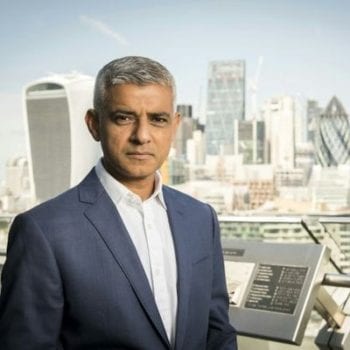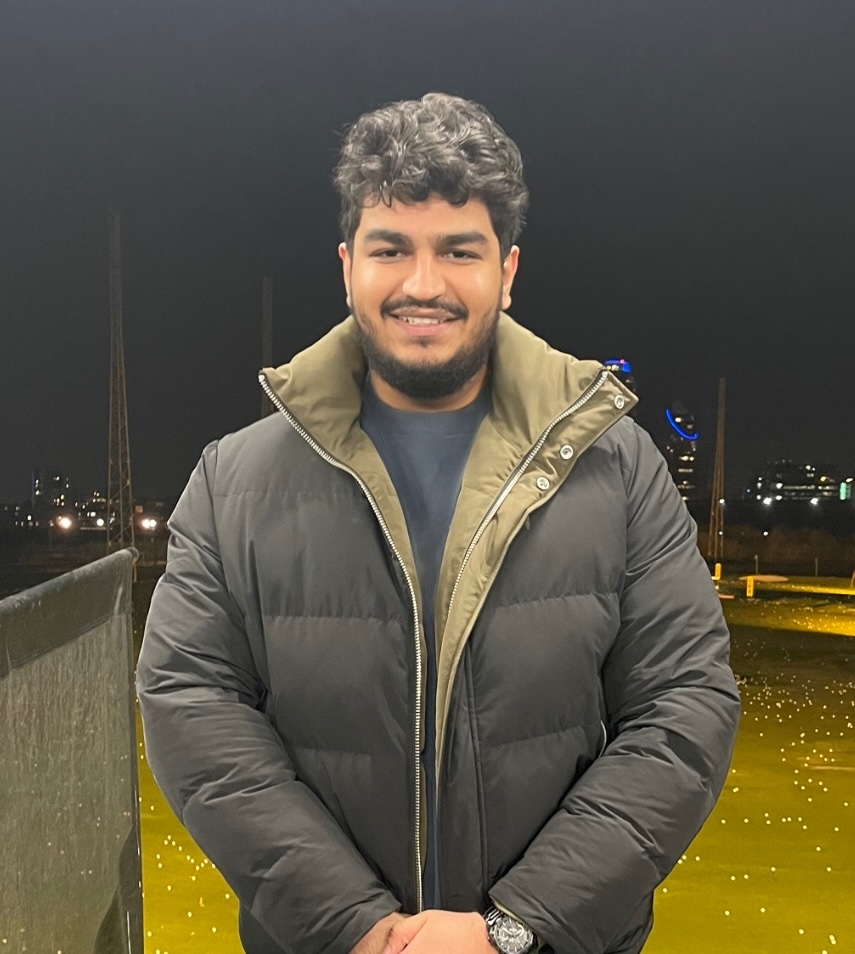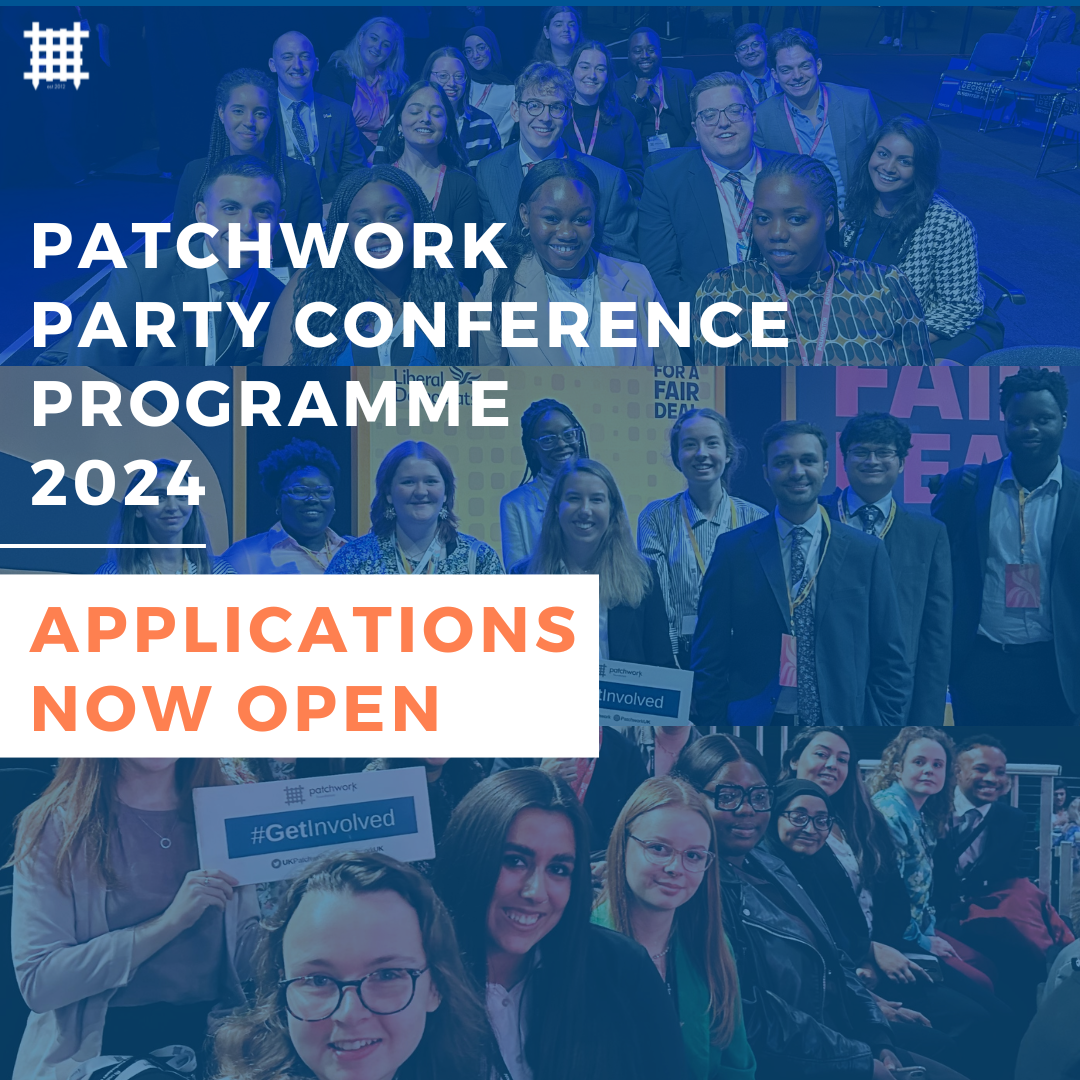Over the last five years, I have seen Patchwork grow from strength to strength. It’s work with underrepresented communities, especially young people, is not only important to get young people involved in our democracy, but has also completely changed so many people’s lives.
What are you up to at the minute?
I’m currently working on a programme at the Department for Business, Energy and Industrial Strategy (BEIS), which is the Help to Grow digital programme. It’s looking at how to boost productivity of UK SMEs (small and medium-sized enterprises). There’s a launch date in a couple of weeks, and the programme should be going live so it’s lots of mobilisation work, implementation work, working with delivery partners, and looking at the forward planning as well. I guess by default I’m a project management professional, so I’m involved in looking at how the project delivery works across the next three years. It’s exciting, but ultimately very, very busy!
Why did you join the Civil Service?
I first worked in local government. I worked for Kensington and Chelsea council as an intern in their Children’s Department, so essentially I was a project support officer there working on the implementation of the Children and Families Act. I was there for about a year and I just felt that it wasn’t for me. It felt like if I was to continue I might get stuck, and that frightened me a little bit, so I thought ‘what do I want to do next?’
I ended up going to South Africa for three months to volunteer through the International Citizens Service. That sparked my interest in international development, and I thought that this was definitely the sector I wanted to be in. So I ended up coming back to England and applying to some entry level roles. A lot of people were like ‘your application is great but you don’t have a Masters’. That’s when I realised that international development has this barrier in that your entry level is not your standard entry level, it actually starts at a Masters-and-years-of-experience level.
I started to look at central government roles, and luckily there was an internship with the Cabinet Office, so I managed to get through on that, and that was my ‘in’ to seeing how central Government works, and whether it was a space I would like to be in. But I think from the beginning it was clear that the public sector, and actually working in policy – whether it’s in the implementation or the development – was something that was of interest to me. My experience of the Cabinet Office was great. Then the opportunity came to work in the Department for International Development, which worked out well, because once I was in that role, I was able to also do a Masters part-time. So it went hand-in-hand – I got the experience that I needed to show that I’d worked in the international development space, and I also got to complete my Masters at the same time.
International development is still something I’d like to move into, or at least have a role that encapsulates or incorporates that, but I definitely think I’ve always had this calling for the public sector, looking at policy, things that impact people, and I think that’s what led me to the Civil Service.
What’s the best thing about working in the Civil Service?
I think the best thing about the Civil Service is just how wide-ranging the work you do is. You might be working in a specific area, but no one day is the same. I’ve worked across different policy areas and different projects, and with so many different people. You can move into different policy areas and engage with different things, and just learn. Having that flexibility to chart your career in the way that you want to is also great. I could, in the next couple of months, see something and think ‘that is the space that I want to be in’, and I have the opportunity to say ‘I can make this happen within the organisation that I’m already in without having to necessarily leave’. The wealth of opportunities are essentially endless.
You were recently named one of the #FutureLeaders on the 2021 HERoes Women Role Model Lists, which you got for your work with the BEIS Women Empowered Network. Can you tell us a little bit more about that?
I sit on our Women Empowered Committee, which is our women’s network at BEIS, as one of the joint Heads for Policy and Culture. Essentially I look at policies that are coming through the department that impact our membership and staff, and the culture in BEIS; how can we ensure that women have the space to progress, are comfortable within the department, and feel like policies don’t detrimentally impact them? So I’ve been doing a lot of work looking at flexible working policy, the impacts of Covid on women in the workplace and career breaks such as for domestic care reasons. I specifically also look at work around allyship as well – engaging allies in understanding gender equality and in discussion with us about how we support female members in the workplace.
So there are so many different things that come across the policy and culture space, and it’s really exciting because you get to engage with different groups, stakeholders, senior Civil Servants, Champions and HR.
Why did you join the Network?
When I joined BEIS, I’d been part of networks before as a member, but I’ve never had that push to be in a committee role. Coming to BEIS was a fresh start for me, and I was very keen to do something that would allow me look at policy but from a gendered perspective. So this was about upskilling myself. I was very conscious that if I wanted to work in gender policy, I would have to make those opportunities happen, because the role that I was going into didn’t necessarily have that. I spoke to my line manager and I was just like, ‘if there’s an opportunity to do gender policy then I’m going to make it work for my role.’ I think there’s something about making those opportunities for yourself.
The Civil Service gets a lot of praise for the work it has done around diversity and inclusion, but also some criticism for how far it still has to go in places. What more do you think still needs to change within BEIS to make sure it is a place where women can thrive?
Of the departments I’ve been in, BEIS does really well in terms of the gender divide across grades. In senior positions, it’s close to 50/50 male SCS to female SCS. I think what we want to focus on is around how we support the pipeline grades such as HEO and SEO, and I think that’s where the work needs to be done. How do you progress junior grade members of staff that are willing into those senior grades? I don’t think it’s ever going to be an issue in terms of having women spread across different grades, but I think there’s something about ensuring there’s a suitable pipeline, and ensuring that there is diversity amongst the women who are moving up – how does social mobility fit in to that, how is disability displayed in that? There’s still room for improvement.
I also think it’s something that always needs a progressive push, because if you take your eye off the ball it’ll just go backwards. How do we sustain this progress?
What advice would you give to Patchworkers interested in joining the Civil Service?
My advice for Patchworkers would be that there’s not one conventional route. I feel like a lot of people see the Fast Stream and think it’s the only way in, but that’s not the case. I would always say get your foot in the door, get in at any grade or any level that you feel you can, and then make your own Fast Stream. So I started off as an EO on my internship, and quickly was made permanent and made into an HEO.
I do think the Fast Stream is great for providing guided development and support in terms of your career trajectory, but you can do the same thing without having to be part of the Fast Stream. Make your own training and experiences. I know a lot of people apply to it and don’t get onto it, and it’s easy to feel disheartened and think that you’re not good enough, and that’s just not the case. The opportunities are endless and the world is your oyster.
What advice would you have for women more specifically at the start of their careers?
Don’t ever underestimate yourself. I think there tends to be this thing where women, especially younger or junior women, know they’re really good at the stuff that they do, but don’t speak up about it or have confidence in that. I don’t know if it’s the fear of coming across as having an ego, but I would say take faith and take pride in what you do, and shout more about it. I found that I was always coming into things with low confidence. I was always really good at delivering work and being able to progress and excel, but I’m not sure I even truly believed it myself, so I think there’s something about taking faith in yourself and working out ways to boost those confidence points as well.
Just feel like you can be yourself and just do you. I feel like we think that if we want to get into leadership positions you have to change yourself, or you might have to become what ‘standard’ leadership is seen as, and I’d say no, just be your authentic self. One thing that one of my mentors told me is to not take lessons in authenticity from anyone else, just do what’s right for you. Leadership styles don’t come in one facet. Make it work.
I’d also say, try to do stuff outside of work as well. I set up a baby clothes and accessories business with a friend of mine two years ago. I would say if there’s anything that I’ve learned from that it’s the importance of expanding your horizons. Things that might be scary, just do them.
Why did you join Patchwork?
I wanted to join Patchwork because I think at that point in my career, I knew a lot about the Civil Service, but I don’t think there was ever that point where I felt that I fully immersed myself in the political sense. So I thought this was the opportunity for me to actually engage a lot more in politics and understand that space a bit more.
But I was also at a point where I was very junior in my career, so I thought this would definitely be something that would push me out of my comfort zone, allow me to develop new skills, and also to expand on my networks as well. Of course, I already knew a few people who had gone on the Masterclass Programme, and they just kept on recommending it! So I decided to take the plunge and I’m glad I did because it has opened up a whole new world of engagement with people and understanding of the wider political system, as well as just understanding why or how things are the way that they are.
What have you gained from your time with the organisation?
It has humanised a lot of ministers for me. What Patchwork does is that you get to see ministers or senior political figures as people, and how they’ve all gone on a journey of building their careers. It’s nice to see what makes them the people that they are, what makes them wake up in the morning, and what motivates them to make the decisions they do.
And you meet so many amazing people, and that’s not just in terms of the senior people you engage with – I’m talking about the cohorts as well. I think that’s an important part of the Programme, that you’re with people who are similarly minded to you, but maybe have different political standpoints. It all comes together to allow great conversations and engagement to happen. I learnt so much from just the lines of questioning that some people would come up with or some of the viewpoints in the more informal conversations that we had. I think it’s important to broaden your focus out from our friends and family to people you might disagree with and come to a point where you can listen to each other and see where they’re coming from.
Do you have any advice for anyone thinking of joining Patchwork?
Don’t feel like you have to be an expert in all things politics and have to be very well rounded in politics to have to apply for Patchwork. I think one of the great things is that that will come in time as you engage with the process, as you engage with the Masterclasses, as you engage with people, so I think as long as you have that small bit of inquisitiveness and dedication to the Programme, it’s worth applying for and giving it a go!
Stay updated
Join our mailing list to stay up to date with all the latest!
Latest news
Testimonials



